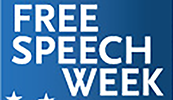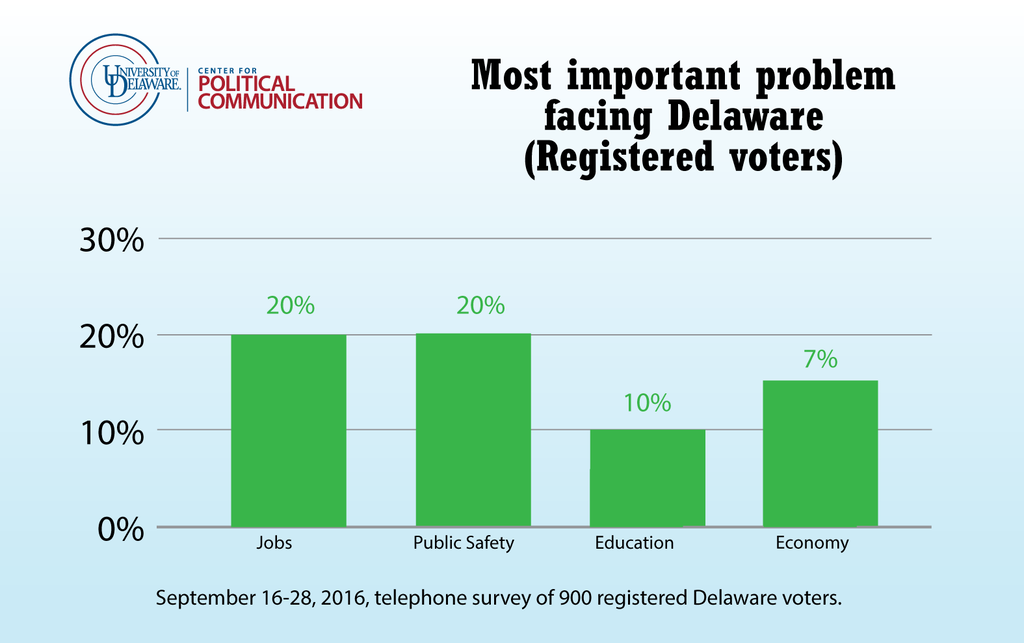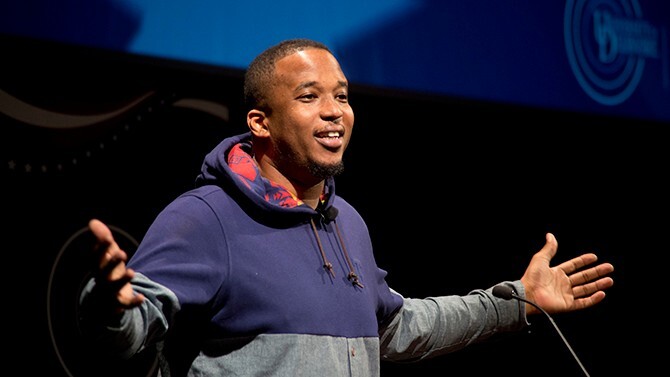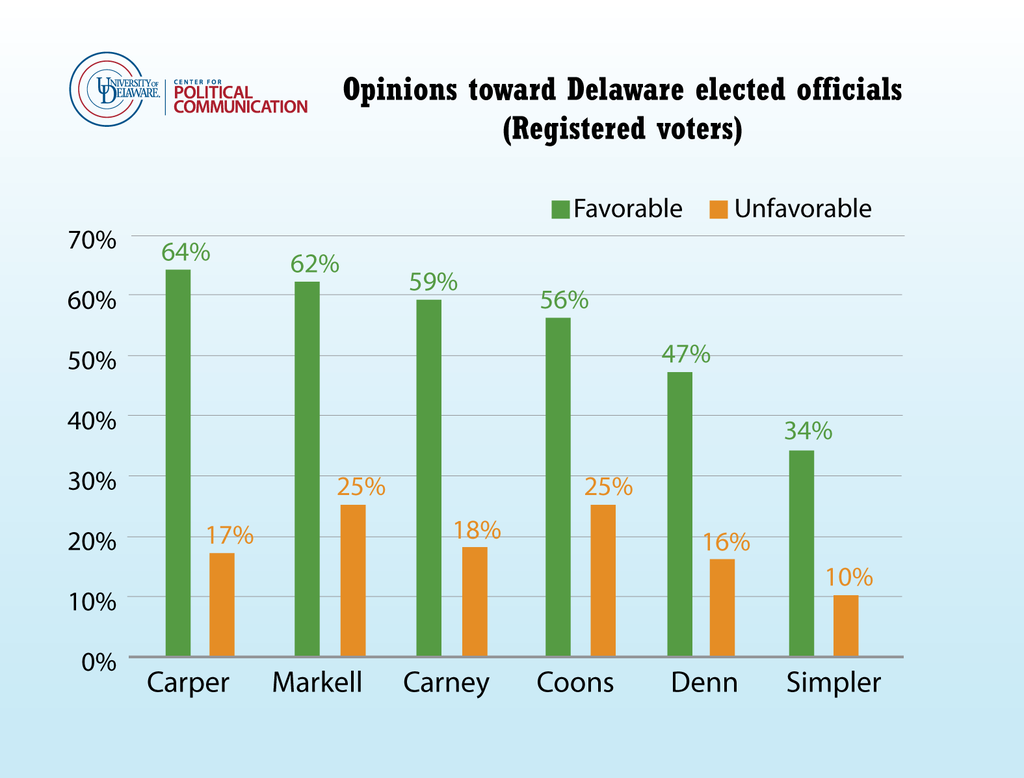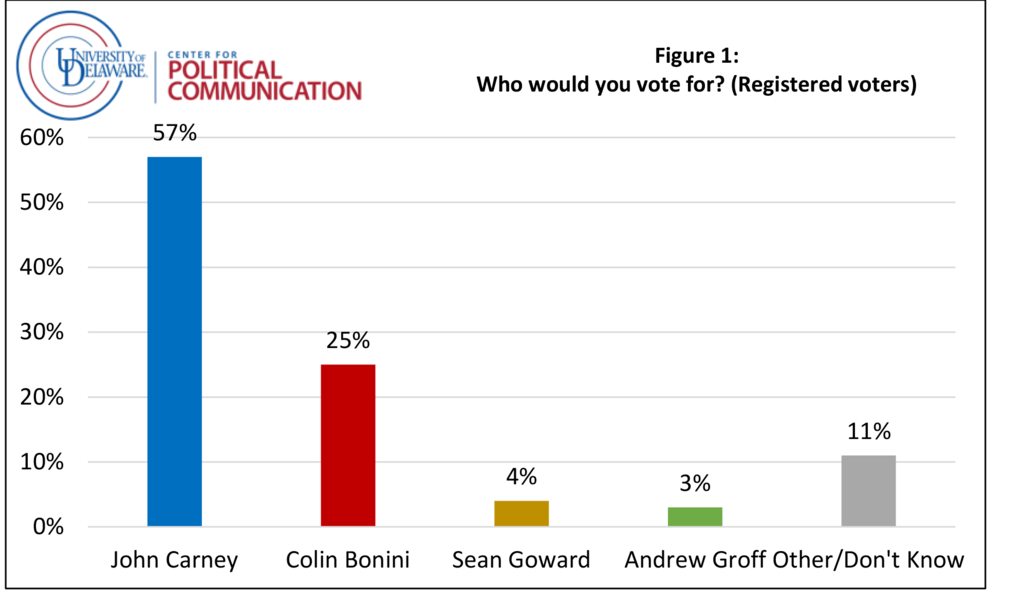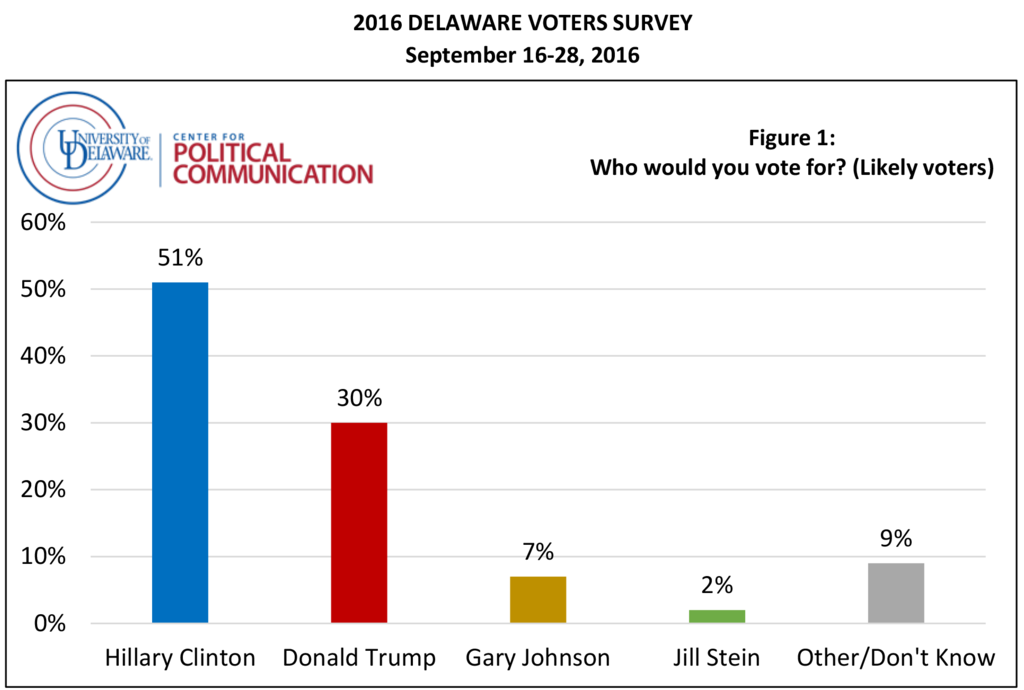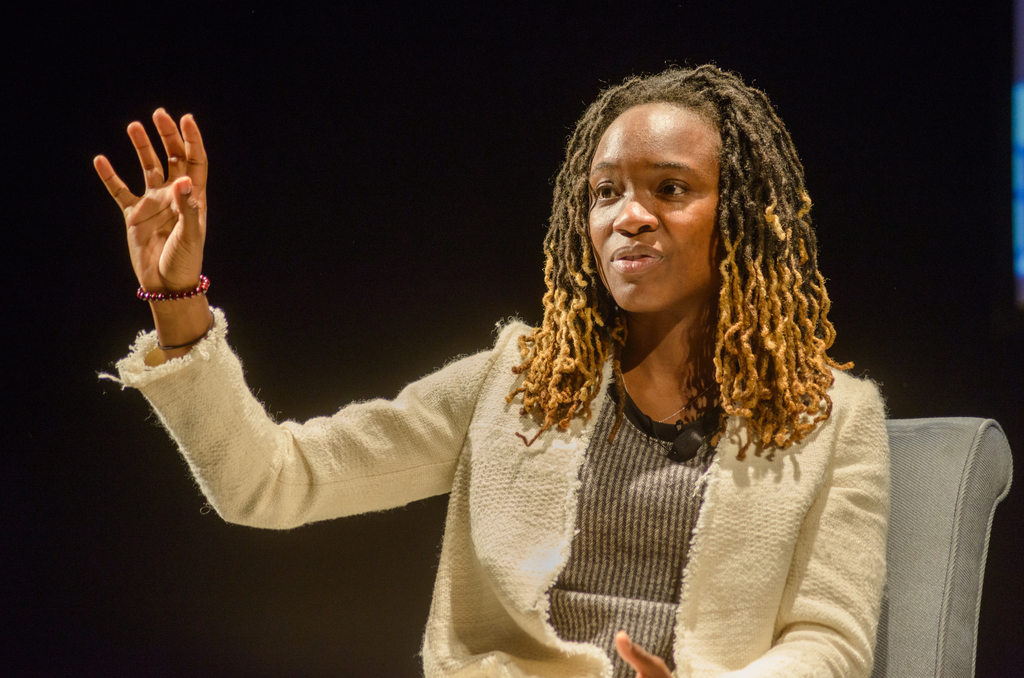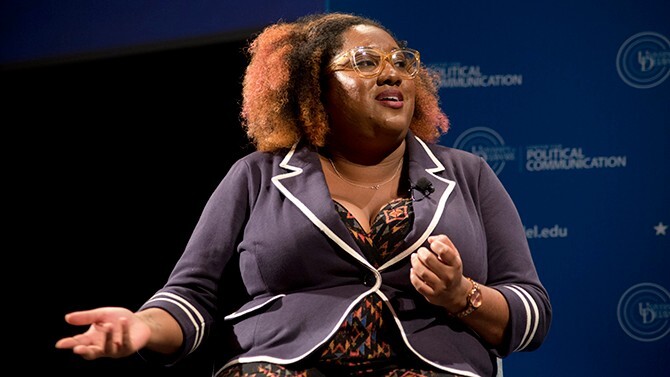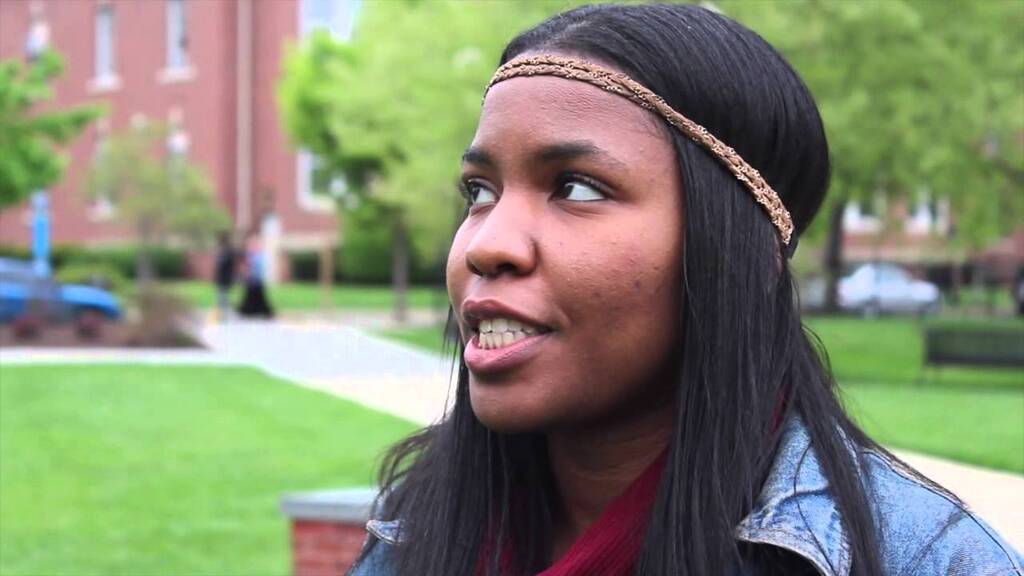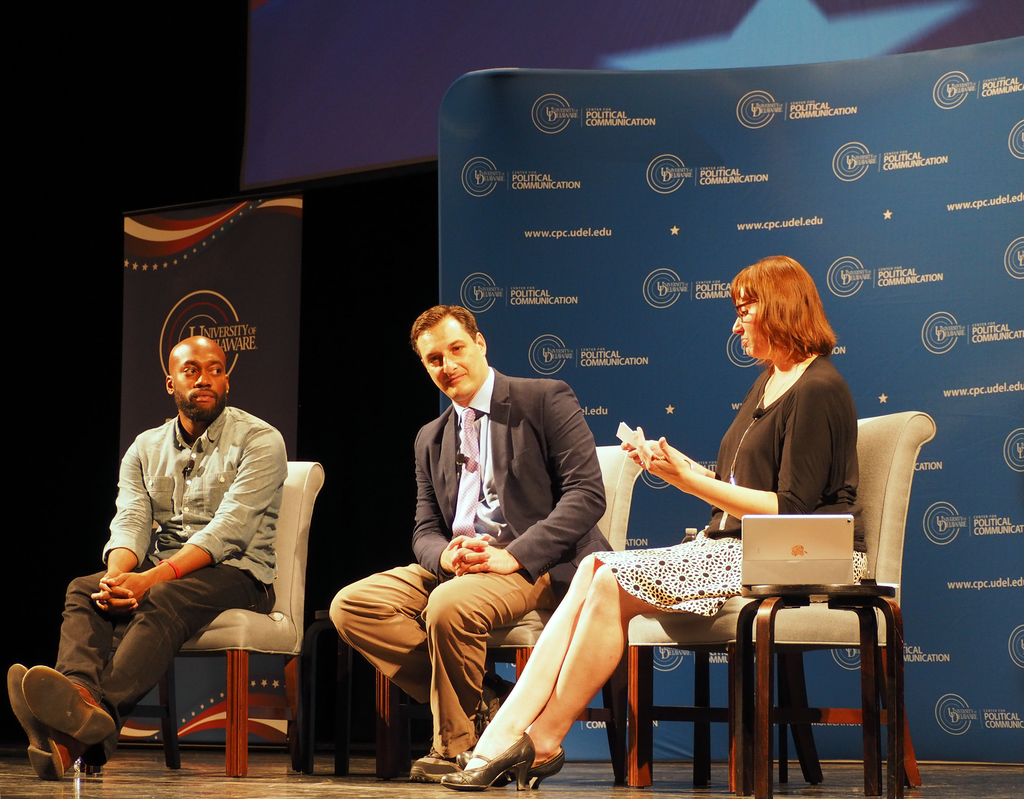The University of Delaware takes part in Free Speech Week
In recognition of Free Speech Week, associate professor of communication Dr. Jenny Lambe presents an open letter to celebrate a fundamental freedom.
Survey: Delawareans rank jobs and public safety as top issues
A University of Delaware Center for Political Communication survey finds that jobs and public safety are the top concerns of Delawareans as Election Day approaches.
RACE, POLITICS AND PEOPLE
Author D. Watkins, who writes from his own experiences growing up in a Baltimore neighborhood and a family where life was often dominated by drugs, shared his views on the 2016 elections.
Delawareans view their elected officials favorably
A new University of Delaware survey finds a majority of Delawareans hold favorable views of Governor Jack Markell and all three members of the state’s Congressional delegation.
Carney, Blunt Rochester take leads in Delaware races
A new University of Delaware Center for Political Communication survey finds that most registered voters in Delaware would vote for John Carney and Lisa Blunt Rochester.
Clinton leads Trump 51% to 30% : New survey: Clinton leads Trump 51% to 30% among likely voters in Delaware
A new survey finds that 51% of likely voters in Delaware would vote for Democratic candidate Hillary Clinton and 30% would vote for Republican candidate Donald Trump.
A PLACE ‘WHERE ALL VOICES MATTER’
Film director Dr. Sheena Howard’s “Remixing Colorblind” examines how today’s educational system shapes the pubic’s understanding of race and the nuances of race relations.
Casting a vote for comedy
People who wonder if comedy really has a place in the world of serious political discussion are missing the lessons of history, comedian and writer Ashley Black told a UD audience.
Film Screening of “Remixing Colorblind” and Q&A with Director Dr. Sheena Howard : Special Events
Join us for a screening of Remixing Colorblind on Sept 28th 2016
Politics, 2016 style
Reporters must make sense of a presidential election campaign where nothing appears to make sense, two National Public Radio journalists told a University of Delaware audience.

